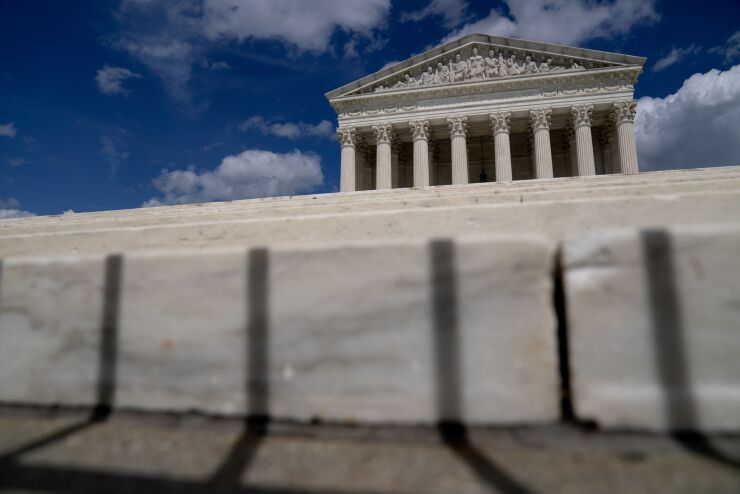The Supreme Court has denied the attempt of the bankruptcy trustee of a failed business to claw back assets fraudulently transferred to the
The shareholders had misappropriated $145,000 in company funds to satisfy their personal federal tax liabilities. The trustee filed an action pursuant to Section 544(b) of the Bankruptcy Code, which allows a trustee to "avoid any transfer of an interest of the debtor … that is voidable under applicable law by a creditor holding an unsecured claim."
In order to prevail under this section, a trustee must identify an actual creditor who could have voided the transaction under applicable law outside of bankruptcy proceedings. The government argued that the trustee's claim failed because the trustee could not identify an "actual creditor" that could have voided the fraudulent transfer because sovereign immunity would have barred any such cause of action in Utah against the government.

The bankruptcy court, the district court and the Tenth Circuit disagreed. But the Supreme Court held otherwise, finding that the waiver of sovereign immunity in Section 106(a) of the Bankruptcy Code applies only to a Section 544(b) claim itself and not to state-law claims "nested within that federal claim."
The opinion, issued in
"Practically, the ruling means that the government — and only the government — can keep fraudulent transfers received between two to four years before bankruptcy," she said.
"The Supreme Court determined that if it adopted the trustee's reading, that it would 'transform that statute from a jurisdiction-creating provision into a liability-creating provisions,' and affirmatively expand the trustee's avoidance powers to a bankruptcy trustee, allowing the trustee to 'avoid any transfer of an interest of the debtor … that is voidable under applicable law by a creditor holding an unsecured claim," explained Castaneda.
"'Applicable law' can refer to any federal or state law other than the Bankruptcy Code, but trustees generally rely on state statutes, and most frequently, on 'fraudulent transfer' state statutes specifically," she said.
The Miller case involved a Chapter 7 trustee of a Utah company that filed for bankruptcy in 2017. The trustee filed a lawsuit against the United States, seeking to avoid $145,000 of tax payments made by the company in 2014 to the IRS to satisfy the personal income tax obligations of the company's principals.
Because the transfer of the $145,000 to the IRS took place more than two years prior to the bankruptcy petition date, the trustee could not void the transfer since that statute only had a two-year lookback period. Instead, the trustee invoked Utah's fraudulent transfer statute, which had a four-year lookback period as the 'applicable law,' she noted.
"The government did not dispute that the debtor received nothing of value in exchange for this transfer, but rather asserted that the trustee could not satisfy the 'actual creditor' requirement, because there was no actual creditor who could have voided the transaction because sovereign immunity would bar any Utah state cause of action against the government," Castaneda added.
The bankruptcy court rejected the government's arguments and entered judgment for the trustee. The district court adopted the bankruptcy court's decision and the Tenth Circuit affirmed the decision.
The Supreme Court reversed the Tenth Circuit and held that waivers of sovereign immunity are jurisdictional, and not substantive in nature, nor as broad as the trustee claimed. It did not alter the substantive waiver of immunity that would not exist under the applicable Utah state law.
On the surface it looks like a favorable result for the shareholders who engaged in the fraudulent transfer. Their debt to the IRS is satisfied, and depending on Utah's statute of limitations and prosecutorial discretion, there may be no future legal action.





